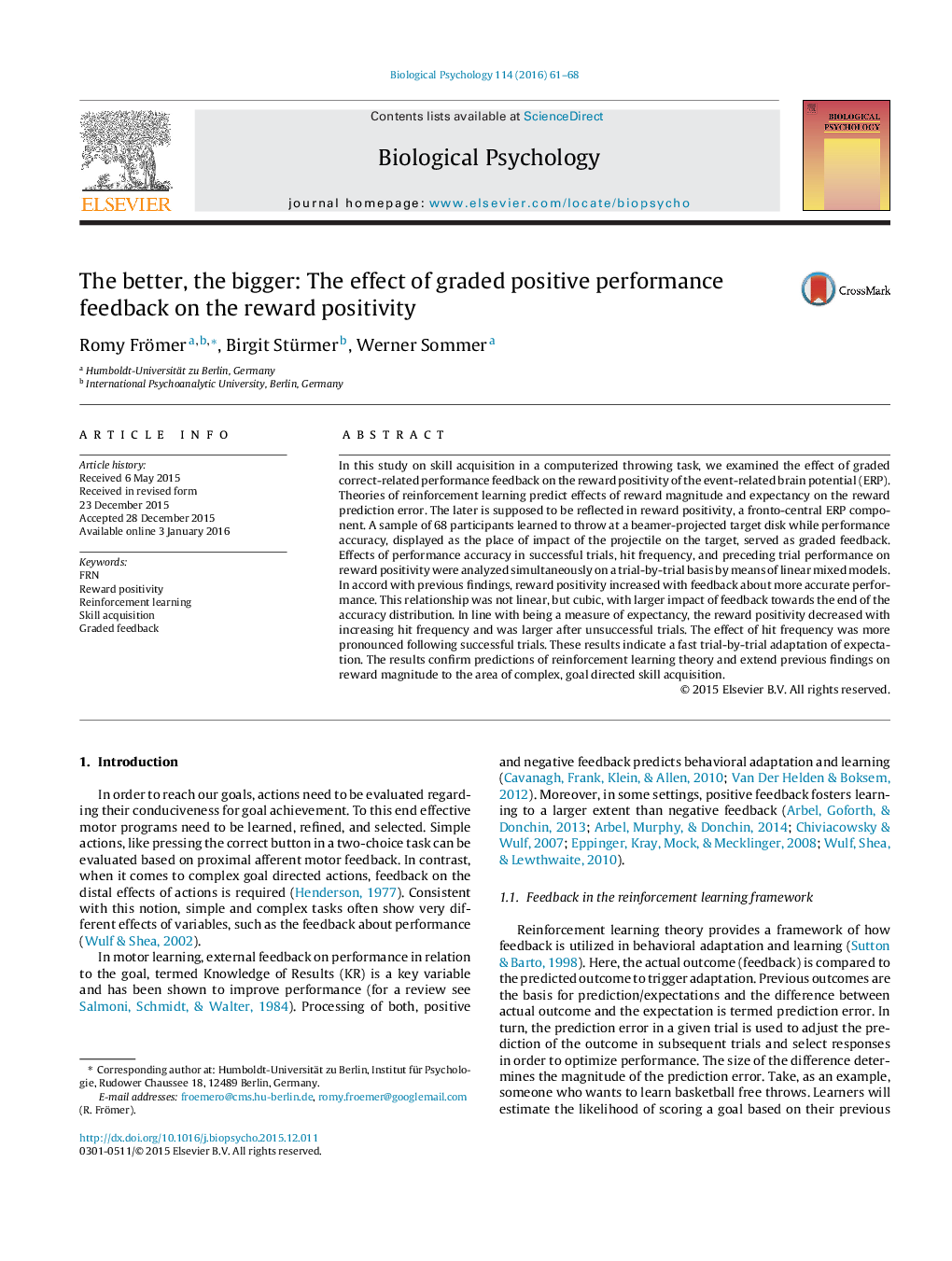| Article ID | Journal | Published Year | Pages | File Type |
|---|---|---|---|---|
| 7278501 | Biological Psychology | 2016 | 8 Pages |
Abstract
In this study on skill acquisition in a computerized throwing task, we examined the effect of graded correct-related performance feedback on the reward positivity of the event-related brain potential (ERP). Theories of reinforcement learning predict effects of reward magnitude and expectancy on the reward prediction error. The later is supposed to be reflected in reward positivity, a fronto-central ERP component. A sample of 68 participants learned to throw at a beamer-projected target disk while performance accuracy, displayed as the place of impact of the projectile on the target, served as graded feedback. Effects of performance accuracy in successful trials, hit frequency, and preceding trial performance on reward positivity were analyzed simultaneously on a trial-by-trial basis by means of linear mixed models. In accord with previous findings, reward positivity increased with feedback about more accurate performance. This relationship was not linear, but cubic, with larger impact of feedback towards the end of the accuracy distribution. In line with being a measure of expectancy, the reward positivity decreased with increasing hit frequency and was larger after unsuccessful trials. The effect of hit frequency was more pronounced following successful trials. These results indicate a fast trial-by-trial adaptation of expectation. The results confirm predictions of reinforcement learning theory and extend previous findings on reward magnitude to the area of complex, goal directed skill acquisition.
Related Topics
Life Sciences
Neuroscience
Behavioral Neuroscience
Authors
Romy Frömer, Birgit Stürmer, Werner Sommer,
